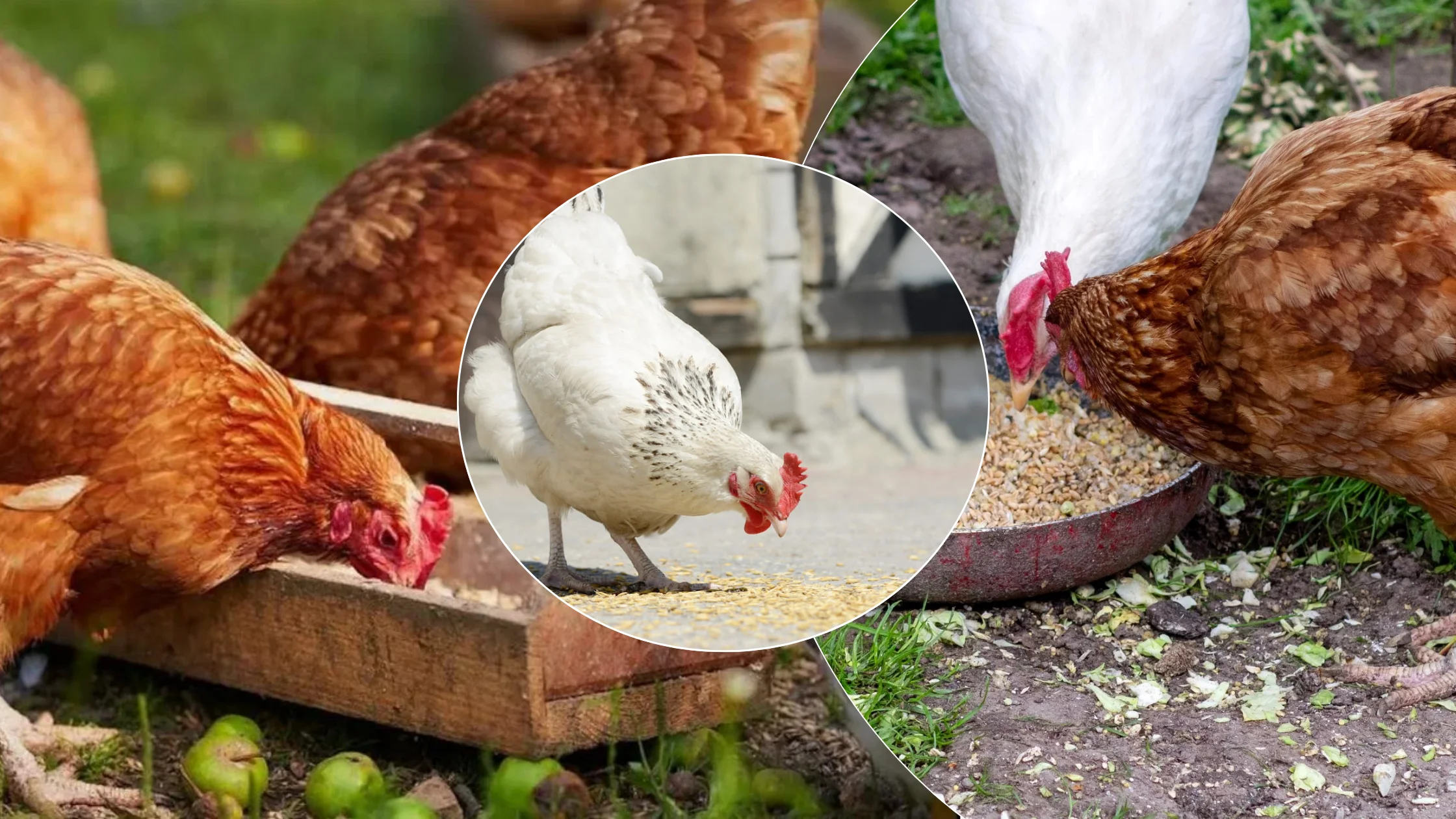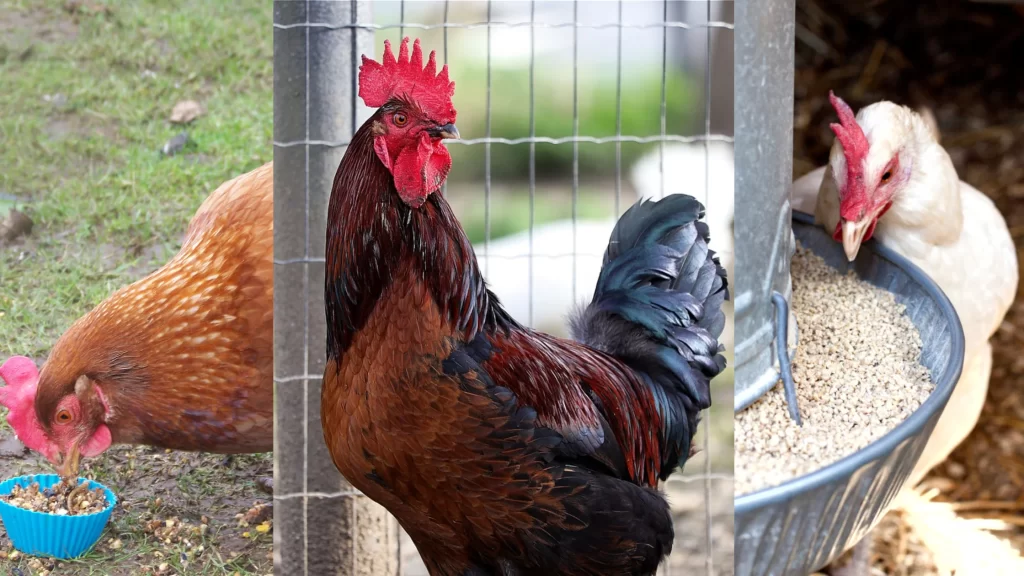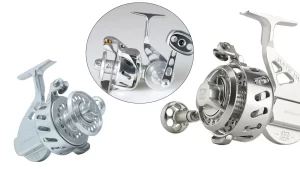Can Chickens Eat Common Foods? A Practical Guide About What Chickens Can Eat
Feeding chickens isn’t just about tossing kitchen scraps their way. Like any pets or livestock, chickens have specific dietary needs...

Feeding chickens isn’t just about tossing kitchen scraps their way. Like any pets or livestock, chickens have specific dietary needs that keep them healthy, happy, and productive. If you’ve ever looked at your leftovers and wondered, “Can my chickens eat this?”—you’re not alone. From fruits and veggies to nuts and grains, some foods are great for your flock, while others are a no-go. Let’s dive into the do’s and don’ts of feeding chickens, so your feathered friends thrive.
Fruits and Vegetables: What’s on the Menu?
Chickens are natural omnivores—they’ll peck at just about anything! Fruits and veggies are a fantastic way to supplement their diet with vitamins and minerals. But not everything in your kitchen is chicken-friendly.
Can Chickens Eat Strawberries?
Absolutely! Chickens adore strawberries. These juicy treats are packed with vitamin C and antioxidants, making them a healthy snack. Just be sure to wash them and remove the leaves to avoid any choking hazards. Remember—strawberries are treats, not staples, so keep portions small.
Can Chickens Eat Celery?
Yes, but with a twist. Chickens enjoy pecking at celery stalks, and the fiber is great for their digestion. However, celery’s stringy texture can be tough to chew, so chop it into bite-sized pieces to make it easier for them.
Can Chickens Eat Onions?
Nope—onions are a big red flag. They contain compounds that can harm a chicken’s red blood cells, leading to anemia. Skip the onions entirely to keep your flock safe.
Can Chickens Eat Avocado?
This one’s a hard no. Avocados contain persin, a toxin that can cause serious health issues in chickens, including heart damage. Keep the fruit, pit, and skin far away from your coop.
Can Chickens Eat Cucumbers?
Definitely! Cucumbers are like a refreshing summer snack for chickens—hydrating and packed with vitamin K for bone health. Serve them sliced or diced to make packing easier.

Read More : Exploring the World of Water Beads
Nuts, Seeds, and Grains: What’s Safe?
Nuts, seeds, and grains can add variety to a chicken’s diet, but moderation is key—they’re calorie-dense and can lead to weight gain if overfed.
Can Chickens Eat Walnuts?
Yes, but keep it occasional. Walnuts provide protein and healthy fats, making them great for energy. Just don’t overdo it—too much fat can upset their digestion.
Can Chickens Eat Corn on the Cob?
Corn is a fan favorite! Whether on the cob or loose kernels, chickens love it. It’s a great energy booster, but don’t let it replace their balanced feed.
Protein-Rich Foods: Eggs, Fish, and More
Chickens need protein for strong muscles and egg production. While their feed usually covers this, occasional treats can help—just choose wisely.
Can Chickens Eat Fish?
Yes! Cooked fish is an excellent source of protein and omega-3s, which can even improve egg quality. Just keep portions small to avoid overloading them with fat.
Can Chickens Eat Mealworms?
Absolutely—they’ll go crazy for them! Mealworms are a protein powerhouse that supports growth and health. Offer them as a treat, and watch your chickens come running.
Foods to Avoid: The Danger Zone
Some foods are harmful or even toxic to chickens. Here’s what to avoid:
- Onions: Anemia risk.
- Avocado: Contains persin, a dangerous toxin.
- Chocolate and Caffeine: Toxic to chickens and should never be offered.
- Raw Potatoes: Solanine in the skins is harmful.
Tips for a Happy, Healthy Flock
Feeding chickens is about balance and variety. Here’s how to keep them in tip-top shape:
- Offer a Variety: Mix up fruits, veggies, grains, and proteins for a well-rounded diet.
- Limit Treats: Treats should make up no more than 10% of their diet.
- Provide Fresh Water: Hydration is just as important as nutrition.
- Focus on Quality Feed: A high-quality chicken feed ensures they get all essential nutrients.
- Observe Your Flock: Watch for any adverse reactions when introducing new foods.
The Final Peck
Feeding chickens is more than just tossing scraps—it’s about making smart, thoughtful choices. By understanding what’s safe and nutritious, you’ll ensure your flock stays healthy and happy for years to come. A little care goes a long way, and with the right diet, your chickens will reward you with plenty of eggs and clucking contentment. Want to see how it’s done? Check out this detailed YouTube video for practical tips and examples to get started!
General Feeding Guidelines
- What can chickens eat and drink to stay healthy?
Chickens can eat a mix of grains, fruits, vegetables, and protein-rich foods like mealworms. They also need constant access to clean, fresh water. High-quality commercial feed is recommended as a staple for balanced nutrition. - What can chickens eat chart: A handy guide for chicken owners
A comprehensive chicken feed chart includes:
- Safe Fruits: Apples (seedless), berries, watermelon.
- Safe Vegetables: Carrots, cucumbers, celery.
- Grains: Corn, oats, barley.
- Protein Sources: Mealworms, cooked eggs, fish.
- Avoid: Onions, chocolate, raw potatoes, avocado.
- What can chickens eat every day for a balanced diet?
Every day, chickens should have access to high-quality layer feed supplemented with occasional treats like fruits, veggies, or grains. Fresh water is essential for their daily intake.
Natural and Alternative Feeding
- How to feed chickens without buying feed?
You can feed chickens kitchen scraps (avoid processed or harmful foods), grow your own grains and vegetables, or let them forage for insects and greens. Sprouted grains and fermented feed are cost-effective options. - What to feed chickens naturally for optimal health?
Feed chickens naturally by offering fresh greens like spinach or kale, grains such as wheat or barley, and protein sources like mealworms or cooked beans. Letting them free-range provides access to insects and seeds.
Seasonal Feeding
- What can chickens eat in the winter to stay warm and healthy?
In winter, feed chickens warm, cooked grains like oatmeal, cracked corn for energy, and protein-rich foods like scrambled eggs. Add fatty treats like sunflower seeds to help them stay warm.
Foods to Avoid
- What can chickens not eat to avoid health issues?
Chickens should not eat foods like onions, garlic, raw potatoes, avocado, chocolate, or caffeine, as these can cause serious health problems or toxicity. - What shouldn’t you feed to chickens?
Avoid feeding chickens anything moldy, spoiled, or heavily salted, as these can upset their digestive systems or cause illness.
Specific Foods
- Can chickens eat carrots, and how should they be prepared?
Yes, chickens can eat carrots! They can be offered raw, grated, or cooked to make them easier to peck and digest. Carrots are a great source of vitamin A. - Can chickens eat popcorn?
Chickens can eat unsalted, unbuttered popcorn in moderation as a treat. However, avoid feeding them any seasoned or sweetened varieties.
Chicken Preferences and Nutrition
- What is chicken’s favorite food?
Chickens love treats like mealworms, berries, and cracked corn. Their favorites often include sweet fruits like watermelon or protein-rich foods like scrambled eggs. - What is the healthiest food for chickens?
The healthiest food for chickens is high-quality layer feed, supplemented with fresh fruits, vegetables, and protein sources like mealworms or cooked fish.





